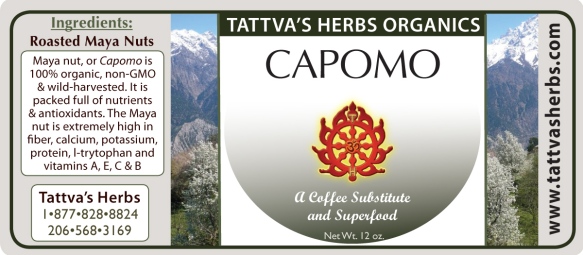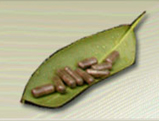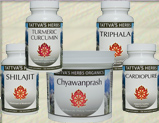 Loading... Please wait...
Loading... Please wait...Providing 25 Years Of Premium Service
Storewide Sale - Save 20%
Capomo – Nature’s Superfood
Posted on 21st May 2013
Tattva’s Herbs is pleased to announce that we will be adding a new coffee alternative and superfood product coming soon! It is called Capomo (sometimes referred to as Maya Nut or Ramon Nut) and is packed with antioxidants, protein, minerals, vitamins and more! Capomo is not only excellent for human consumption, but the harvesting of the nut employs and empowers women who are dedicated to replanting and conserving the forests where it is from.

Capomo is harvested in a very unique and compelling manner. The Maya nuts are collected by hand from the jungle floor once they have fallen from the trees. Collection happens daily, in the early morning before the animals have a chance to feed on them. Once the nuts are collected, they are dried in the sun for 2-3 months, at which time they are ready to be roasted and prepared for human consumption.
Capomo (Brosimum alicastrum) is in the fig family and was the staple food for pre-hispanic cultures. This superfood contains numerous nutritional benefits. It is one of the richest plant sources of amino acids which, among many others have been shown to positively affect mood and contentment. It is also high in protein, fiber, calcium, potassium, folate, iron, zinc, and vitamins A, B, C and E, while at the same time it is low in fat and calories.
In addition to the many health benefits of Capomo, it is beneficial for all of the surrounding people, animals and all forms of nature in the areas in which it grows. Capomo empowers and employs more than 600 rural and indigenous men and women who have formed 25 different autonomous businesses to produce and market Maya Nut products.
The Maya Nut Institute is an admirable example of a group that teaches workshops and trains local women in the production and marketing of capomo throughout Mexico. Animals enjoy the taste and health benefits of the Maya Nut plant as well. Traditionally, pigs, horses, cows and bats have been known to gain valuable nutrition from the leaves and stems of the tree and have even been shown to increase milk production in cows by 1-2 liters per day. The people involved in harvesting Capomo are also deeply dedicated to reforestation. In fact, there have been over 1.5 million Maya Nut trees planted since 2001.
To read more about the Maya Nut Institute click here.
The following is an excerpt written by Dr. Leslie Korn in “Capomo: Good Cheer from the Gods”
“Every part of the Capomo tree is nutritious and beneficial to humans, animals and the environment. The leaves may be eaten like spinach, the sap is nutritious, and the seeds are like potatoes when boiled and delicious with honey. The sap from the tree is sweet and serves as a traditional drink known to increase mother’s breast milk.”
She goes on to add, “Amino acids are the building blocks of protein and are responsible for repairing cells, stimulating antibodies to fight bacteria and viruses, and to carry oxygen throughout the body. They also make our brains work and our synapses, snappy. Capomo’s special quality is that it provides significant levels of all the essential amino acids (“essential” means amino acids that can only be supplied via food). It is especially high in methionine, which helps the liver process fat and toxins, and tryptophan, an amino acid that is energizing and relaxing, as it lifts the mood. Capomo is high in fiber, calcium, potassium, folate, iron, zinc, protein and vitamins A, B, C and E. The seeds when roasted for café or boiled for bread have the protein equivalent of eggs. Too many cups (4+) of Café de Capomo have been known to cause the “jitters” in some people. The flour is nutritionally superior to any other flour and is ideal for people with gluten sensitivity.
Four-footed animal friends; pigs, cows and horses also love capomo. Cows fed capomo leaves produce 1-2 liters more milk per day than cows fed on pasture. Bats love the thin-skinned fruit around the “nut” and after eating it, drop it to the ground so we may prepare it for roasting café de capomo or grinding into flour.”















